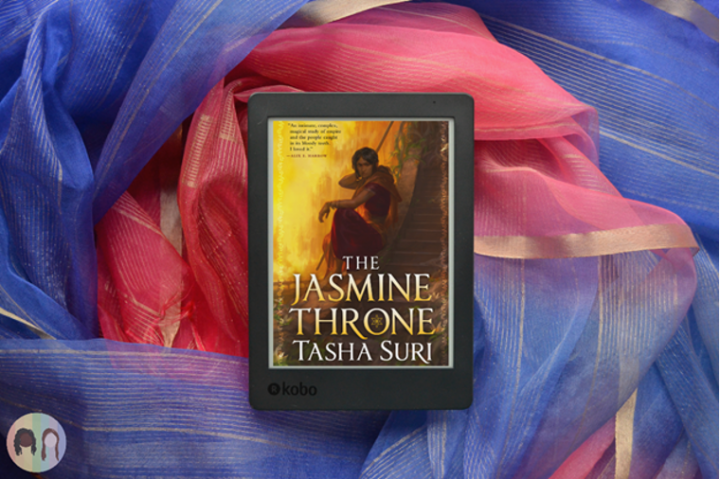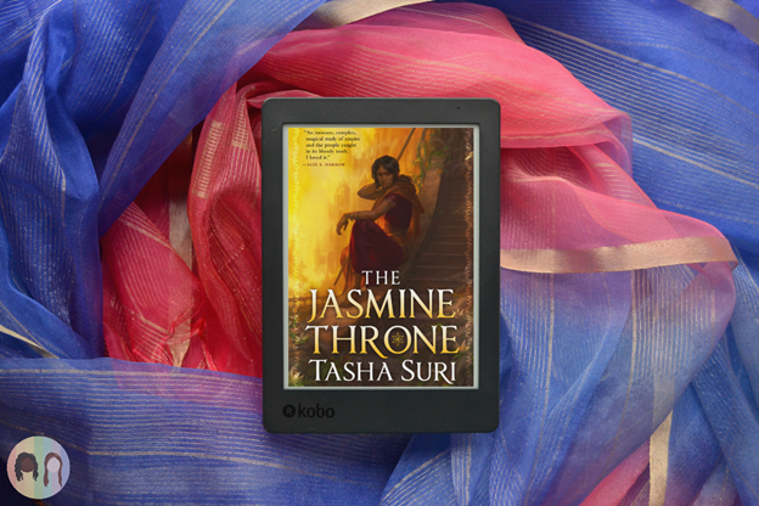

Fantasy is my genre of choice, but it’s also the most difficult to review—I find there is such a fine line that, if crossed, gets dangerously close to spoiler-territory, and I would hate to do that to you, dear readers. I’m a person that never reads a summary immediately before picking up a book (I may have read it months, sometimes years, earlier, but then thrown it on my TBR and never looked at it again). Since I feel like the summaries on the backs of novels can be too spoiler-ridden, I suppose it’s unsurprising that what follows is the vaguest review I could possibly draft, while still trying to get you to add this book to your list. Hopefully I succeed in that!
A good fantasy novel can really make a profound impact on me; the way that it lingers in my mind, the way that I yearn to plunge back into a well-built fantasy world, the way that the characters and their motivations captivate me, and the way that the stories stick with me far after I’ve finished flipping through its pages. Set in a South-Asian-inspired fantasy world that is wholly fiction and yet feels so painfully real, The Jasmine Throne is the exact type of fantasy novel that I will never forget and that I will revisit over and over. While this is the first book by Tasha Suri that I’ve had the pleasure of reading, it certainly won’t be my last. And while I’m going to dive into why I loved this book so much, as I said, I will remain as vague as possible.
Just like some of my favourite fantasy writers (like NK Jemisin and P. Djèlí Clark), Suri is immensely skilled at weaving together what can be described as nothing less than an epic fantasy. The complexity of the world-building was apparent, requiring the skills of a master storyteller in order for it to be as compelling as it was, rather than confusing and disjointed. A clearly feminist fantasy novel, Suri skillfully ties in themes of colonialism, imperialist class wars, and horrific patriarchal practices, with the uncertain and at times precarious bond that exist between families (blood and chosen alike), and the tender love developed between two people who are inexplicably bound amidst a complicated political conflict in which they’re both heavily embroiled. Suri poignantly highlights how history is in the hands of its writers, who can twist and sharpen the facts until it creates a tool that will further their own agenda.
“The moment I saw you, I felt a tug. You are the feeling of falling, the tidal waters, the way a living thing will always turn, seeking light. It isn’t that I think you are good or kind, or even that I love you. It is only that, the moment I saw you, I knew I would seek you out. […] Just as I seek all things—without thought, with nothing but want.”
There was a constant ebb and flow of at times warring emotions within myself as the reader, as I went through a rollercoaster of anger and frustration, to excitement and trepidation at the various revelations, to heart-melting sapphic yearning. Every character is complex and morally gray, so much so that my own alliances and enemies fluctuated constantly as I read the book. Each point of view was enthralling in its own way, and eye-opening in the sense that it revealed another dynamic in this world that was truly boundless and multi-faceted. Even as I’m writing this, so many months after completing the book, I am utterly blown away at the epic proportions this story embodies, at the warring ideas presented by the author: the heavy politics and vivid worldbuilding; the beautiful cultures that persistently attempt to outlive empirical rule; and the ways in which the fabric of the world itself rebels against the thriving injustices. Not only that but the author’s gorgeous prose elevated the experience, breathing life into the unique world that Suri paints, with so many powerful quotes that I compulsively read over and over.
It was immersive and transportative. As a reader, I felt like I was a hovering apparition, watching everything unfold in real-time, feeling the heat of the flames and the burn of the cold almost as if I was really there, completely lost in the emotions that the author invoked in me. The Jasmine Throne is the embodiment of an epic fantasy, but none of that two-dimensional, repetitive stuff that tends to hit the bestseller list and sky-rocket into infamy; it is brilliantly imaginative, enriching in its diversity, and utterly captivating from start to finish. If the set-up of the trilogy can be so good (considering that the first book in trilogies can often fall into an over-descriptive trap plagued by too much wordy world-building), I am more than a little excited about how the rest of the series plays out. Happy reading, friends!
“There was no void in her any longer. Whatever she was— weapon, monster, cursed or gifted— she was whole.”
Content warnings: explicit violence; immolation and self-immolation; gender-based violence; death of family; childhood trauma; familial abuse; forced drug use; depictions of addiction and withdrawal; child murder; state-sanctioned murder and executions; gruesome death by elephant; cultural genocide; colonisation; colourism; homophobia; suicidal ideation; self-mutilation; body horror.
